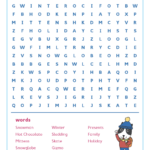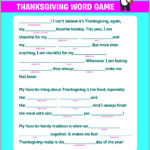Just in time for the high holidays season, Molly Katz, author of Jewish as a Second Language, shares a CliffsNotes-style rundown of Rosh Hashanah customs and the symbolism (and humor) behind them.
Click here to read an excerpt from Jewish as a Second Language.
 Rosh Hashanah is the Jewish New Year, which begins this year at sundown on September 8. For Jews it is the symbolic anniversary of the creation of the world–and the actual anniversary of having our celebration critiqued annually by an expert panel of relatives.
Rosh Hashanah is the Jewish New Year, which begins this year at sundown on September 8. For Jews it is the symbolic anniversary of the creation of the world–and the actual anniversary of having our celebration critiqued annually by an expert panel of relatives.
The celebration includes:
1. The sounding of the Shofar. This is the ceremonial ram’s horn that looks like the curled tentacle of a hungry octopus. It dates from ancient times, when making loud noises on the New Year was thought to scare off demons. Hence our Jewish habit of making loud noises in all situations.
Four specific blasts must be made, and in some homes 100 blasts of the horn are traditional. This insures a good year, and also excellent business for all the pulmonologists in our family.
The notes of the horn represent the sound of a King’s coronation, and the wailing of a Jewish heart. (Actually, many sounds may be compared to the wailing of a Jewish heart, such as a hedge trimmer.)
2. The sacred elements of the festive meal. A round challah bread is served, which symbolizes completion, as well as the waistlines of many of the guests. We eat the bread not with butter but with honey and apples; this represents a sweet New Year and serves the dual purpose of honoring our equally traditional lactose intolerance.
On the second night of Rosh Hashanah, we eat a “new fruit”–a fruit that has recently come into season but that we have not yet had the opportunity to eat. When we eat this new fruit, we say a special blessing thanking God for keeping us alive until this season (and warning Him not to let the fruit keep us up all night with the runs).
3. Many families follow the custom called Tashlich (casting off), in which they walk to flowing water, say a prayer, and symbolically throw their sins into the stream. Part of this custom is to warn one another not to accidentally cast our tennis bracelets into the flowing water, lest there follow an earsplitting live demonstration of the wailing of a Jewish heart.
If you’d like to participate in our celebration of the New Year, hint around to the Jews you know for an invitation. Remember that Jewish hints have all the delicacy of a cinderblock. So instead of saying, “I’m intrigued by your New Year customs,” try, “My doctor just put me on Prozac because I wasn’t invited to any Jewish New Year events.”
Enjoy, and Shana Tova (which means “good year,” and is also the name of the Hebrew Goddess of Overcooked Chicken).





1 Comment
Marva D. Garza
September 26, 2010 at 12:28 pmI’d say that the Garden Groom is the only hedge trimmer that actually works – check out this article: http://hubpages.com/hub/Where-To-Buy-Garden-Groom-Midi-Collecting-Hedge-Trimmer